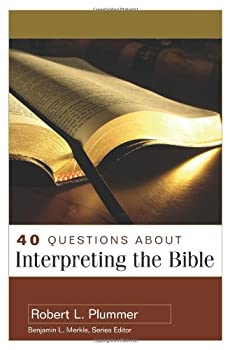Linguistics & Biblical Interpretation

So far, I’m very much enjoying Linguistics & Biblical Interpretation, by Cotterell & Turner. Very easy to read and understand, as it strives to lay a foundation for the value of linguistically-supported study of Scripture.
I found the following, from the chapter on the pitfalls of word studies, interesting:
…my concept of ‘boy’ in the more general usage may include very many features concerning the range of their features and physique, their hygiene, their habits of play, their social abilities and limitations, and so forth, none of which is linguistically attached to the word ‘boy’ as such at all. The sentences
(1) Boys are usually male,
(2) Boys are usually unkind,illustrate the difference. The first will be recognized as semantically anomolous (sic), for the qualifier ‘usually’ implies there are exceptions; but a boy that was not a male would appear to be a contradiction of the sense “boy”. The second sentence is linguistically acceptable (even though we consider it wholly untrue) because nothing about the sense of the word ‘boy’ overlaps in meaning with either ‘kind’ or ‘unkind’. The sense “male” is linguistically attached to ‘boy’; “kind” or “unkind” is not.
L&BI, p. 117
That seems pretty clear, and that level of clarity is appreciated. More often than not, linguistic study is rolled up with nuance – but that doesn’t mean it has to be overly complicated!



